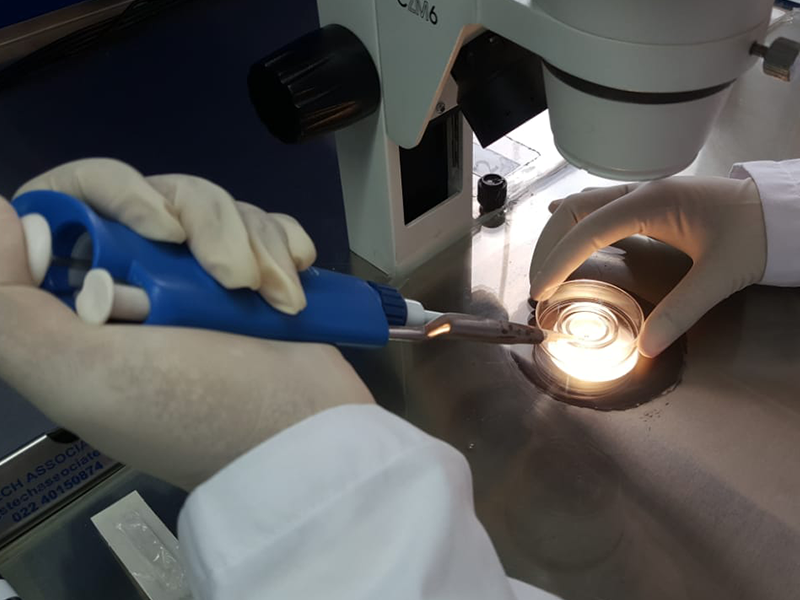Objectives
At completion of the course, students would have
- Acquired the basic understanding of human reproduction, genetics and infertility.
- Acquired the theoretical aspects of clinical andrology, embryology and Pre-implantation genetic diagnosis
- Developed skills to handle andrology laboratory techniques, sperm function tests and processing of semen for various procedures
- Developed an understanding of how IVF laboratory works
- Developed routine embryology laboratory skills including the handling of gametes and embryos.
- Developed skills in the micromanipulation of gametes
- Developed skills in the micromanipulation of gametes and embryos.
- Developed skills in the cryopreservation of gametes, embryos and reproductive tissues and apply those skills in a clinical setting.
- Developed skills in embryo biopsy
- Developed an understanding on the legal aspects that regulates ART practice and the ethical issues surrounding ART practice.
- Review literature, design and carry out basic and clinical research.
- Able to teach clinical embryology and pre-implantation genetics.
Student internship
In order to understand the working of an IVF Centre, students will be posted in our IVF centres (Mysore, Bangalore and Chennai) for observation and hands-on practice during 1st, 2nd and 3rd semesters.

Course Eligibility
Students of Bachelors of Science (B.Sc) degree from any UGC recognized Universities/MBBS/ BDS/ BAMS/ BHMS, Pharmacy, Nursing, BVSc, Dairy, Fishery and Engineering with Science (Biotechnology and Life science related) or any other equivalent degree are eligible to apply for this course. Students with Foreign National degree will apply through equivalence committee. Candidates with 45% and above are eligible to apply for this course.
Course Structure
The 2-year MSc course consists of 4 semesters of 6 months duration and students will appear for 2 theory & 2 practical examination at the end of each semester. Students will undertake research project work in the final semester
Research Emphasis
Students are taught about research methodology in the third semester to prepare them to do a research project in the final semester. This will prepare them to be a well-rounded embryologists and researchers if they wish to pursue PhD in the future.
Career opportunities
Clinical embryology is an exciting and growing filed. A masters in this field particularly Clinical Embryology in combination with PGD which is offered only in ASPIER will be an added advantage for graduates of this institute which will prepare students to take up career as an embryologist in the IVF centres to perform embryology work and also perform embryo biopsy to identify genetic diseases. After MSc, students can work as embryologists in IVF Centres or pursue PhD studies. ASPIER arranges campus interview during the last semester of the course for placements.
The first baby through the process of IVF (In Vitro Fertilization) was born in the year 1978 in the United Kingdom. Since then, IVF centres have mushroomed around the world. Infertility affects about 15-20% of married couples and is a huge social problem in many countries including India. Couples seek treatment for infertility in IVF centres around the world. There are more than 2000 IVF Centres in India alone where there is demand for in-house embryologists which will be mandatory to have at least 2 embryologists in every IVF centre according to the ART bill which was passed in the parliament in India recently.

